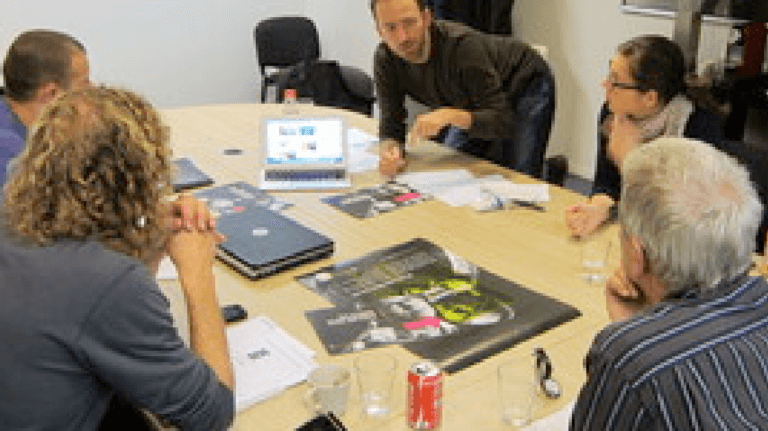
The Charter of Fundamental Rights of the European Union (2000) in its Article 21 on non-discrimination prohibits discrimination on several grounds, including genetic features. This is further underlined by the Convention on Human Rights and Biomedicine from 1997, which states that ‘any form of discrimination […] on grounds of his or her genetic heritage is prohibited’. This fundamental non-discrimination approach adequately shows that people who have a genetic predisposition to deafness or are deaf due to genetic reasons must not be discriminated against.
The UN Convention on the Rights of Persons with Disabilities (UNCRPD) prohibits all forms of discrimination against persons with disabilities. Specifically, Article 23(1)c protects the fertility of persons with disabilities on an equal basis with others. This includes deaf people, whatever the reason of their deafness may be. Since the UNCRPD has entered into force in May 2008 the social model of disability has become formalised in a unique way. It was the first Convention to be ratified by the EU as a whole (in December 2010) and the numbers of signatories have been and are still increasing at the fastest rate ever.
Nonetheless, practices to ‘normalise’ deaf people can be seen in nearly every Member State of the EU. Normalisation as a policy measure has not achieved the desired results for societies as hoped for. Such measures can range from forced cochlear implantation to inclusive school settings that do not provide access in an adequate language, namely a national sign language, or genetic developments to identify ‘deaf genes’ with the aim of eradication. These attempts imply policies, which aim to eradicate deafness or severely reduce deafness and are linked to an outdated medical model that does not resemble the ‘United in Diversity’ approach the EU promotes. Normalisation as a policy measure can have serious effects on Deaf Communities and their indigenous sign languages, possibly leading to their extinction.
After continuous work by Deaf associations across the world, most notably the World Federation of the Deaf, the UNCRPD clearly gives equal rights to Deaf sign language users and acknowledges the culturo-linguistic dimension of the Deaf Community and its individual members, giving them linguistic and cultural rights, similarly to those accorded to indigenous minorities. EUD is concerned, however, over new legislation being passed in several EU Member States that limit the biodiversity of humanity by allowing couples or doctors to choose which embryos are implanted in women under genetic testing and following counselling. More specifically, forbidding the implantation of embryos that could possibly be deaf from birth or become deaf at a later stage in life. One of the most striking examples was the UK Human Fertilisation and Embryology Act (2008), which was widely debated not only within the UK but also throughout Europe and the world. In its clause 14(4)(9) it states:
“Persons or embryos that are known to have a gene, chromosome or mitochondrion abnormality involving a significant risk that a person with the abnormality will have or develop –
- a serious physical or mental disability,
- a serious illness,
- any other serious medical condition,
must not be preferred to those that are not known to have such an abnormality.”
In the public discussion that took place during the passing of this Act, deafness was used as an example of a ‘serious physical disability’. Citizens who are deaf due to genetic reasons were used as examples of people who would not be allowed to become gamete donors if they make it known their intention is the passing on of a deaf gene. Deaf couples and donors may also be questioned by health professionals if they are donating for a couple who cannot conceive a child in a natural way. In EUD’s view this constitutes unequal treatment of a significant number of its citizens and is not in line with the UNCRPD or the EU Disability Strategy, which both aim at promoting the equality of all persons, whatever their disability.
EUD is further concerned that these developments will lead to both Deaf and hearing couples being forced to not have children, or be pressurised to choose a hearing embryo if they undergo genetic testing for personal reasons (e.g. researching their genetic family history) (Emery 2007). Genetic information must be kept fully confidential and not be used as a means to discriminate for example by employers, governments, or the medical community, including insurance companies. It is indispensable that genetic counsellors become aware that Deaf or hard of hearing couples may have different values and understandings of what their child should be like (Middleton, 2010). The cultural environment (in this case the Deaf Community) has to be taken under account when parents opt for genetic counselling.
EUD therefore requests full access to genetic counselling for Deaf couples or families in sign language so potential parents can make an informed choice not based on prejudices; practices like this create an environment that excludes deaf people and couples rather than fostering an inclusive society that values all its citizens.
EUD also calls on European governments and the EU to keep genetic information fully confidential. Discrimination on the ground of genetic information must be sanctioned and be prohibited using a non-discriminatory approach, especially in the employment, insurance, and genetic counselling fields. EUD demands the Council to reactivate the Anti-Discrimination Directive and to make it a fully binding piece of legislation as soon as possible to ensure discrimination is covered at all possible levels.
Note: EUD would like to thank Alison Bryan, Steven Emery, and John Bosco Conama for their invaluable input to this paper.
Full texts Legislation:
HFE Act: http://www.legislation.gov.uk/ukpga/2008/22/contents
Charter of Fundamental Rights of the European Union (2000/C 364/01): http://www.europarl.europa.eu/charter/pdf/text_en.pdf
Convention on Human Rights and Biomedicine (1997): http://conventions.coe.int/Treaty/en/Treaties/Html/164.htm
Proposal for a European Anti-Discrimination Directive (2008): http://eur-lex.europa.eu/LexUriServ/LexUriServ.do?uri=CELEX:52008PC0426:EN:NOT
References & Further Reading:
Arnesen, A-L., Bîrzéa C., Dumont B., et al (2008). Policies and practices for teaching sociocultural diversity – A survey report. Strasbourg: Council of Europe Publishing
Deech, R. Baroness (2007). Human Fertilisation and Embryology Bill. House of Lords Debates. Available at http://www.theyworkforyou.com/lords/?id=2007 -11-19b.663.0 (Accessed on 17 April 2009).
Department of Health (2009). Consultation on regulations to implement the Human Fertilisation & Embryology Act 2008. COI: Crown Copyright.
Emery, S. (2011). Citizenship and the Deaf Community. Ishara Press: Nijmegen.
Emery, Steven D., Middleton A. & Turner, G. H. (2010). Whose Deaf Genes are they Anyway? The Deaf Community’s Challenge to Legislation on Embryo Selection. Sign Language Studies 10 (2) 155-169.
Emery, S. D., Middleton A. & Turner, G. H. (2007) “I was told I had a moral responsibility to society to abort my son as he would be deaf”: the Deaf/Genetics interface’, Society for Social Studies and Science (4S) 2007, Conference, Montreal, Canada, 11-13 October 2007.
Human Genetics Commission (2006). Making Babies: reproductive decisions and genetic technologies. Accessible at: http://www.hgc.gov.uk/UploadDocs/DocPub/Document/Making%20Babies%20Report%20-%20final%20pdf.pdf (Accessed on 19 March 2012).
Leeson, L. & Sheikh, H. (2010). Experiencing Deafhood – A Snapshot of Five Nations. Interesource Group Publishing: Dublin.
Middleton, A. (Ed) (2010). Working with deaf people – a handbook for health professionals. Cambridge: Cambridge University Press.
Middleton A., Emery, S.D. & Turner, G.H. (2010). Views, Knowledge and Beliefs about Genetics and Genetic Counselling amongst People with Deafness. Sign Language Studies , Volume 10, 2 (2010) pp.170-196.
Deel dit artikel...
Verwante artikelen

EU-parlement
The European Parliament (EP) is an important forum for political debate and decision- making at

Bulgarije
Съюз на глухите в България (SGB) Union of the Deaf in Bulgaria Information and facts about

Luxembourg
Press briefing (press conference) of the government (governorate), with the sign language interpreter! It will

Duurzame ontwikkelingsdoelstellingen (SDG's)
EUD advocates for the achievement of the Sustainable Development Goals or Global Goals which are







